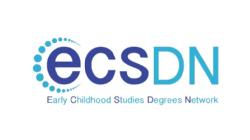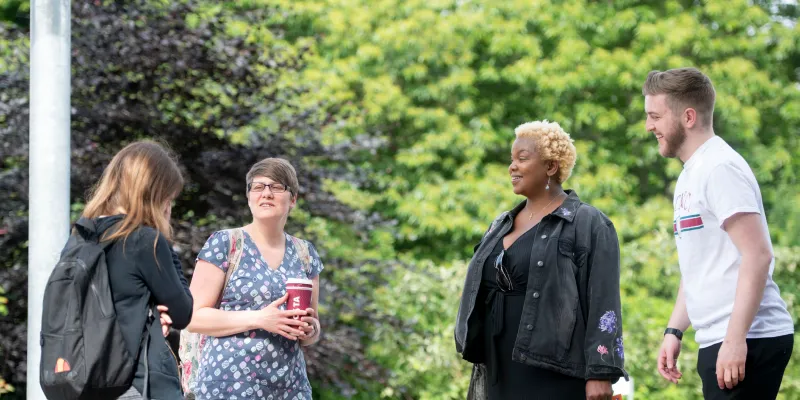BA (Hons) Early Childhood (top-up)

Find out more about our BA (Hons) Early Childhood top up degree
The Early Childhood Team at the University of Warwick are delighted to offer a BA (Hons) in Early Childhood, to support you to extend the numerous skills and qualities obtained in your level 4 and 5 modules and to then thrive at Level 6. During this time, you will be nurtured by fantastic tutors with a range of expertise in Early Childhood. You will engage with 3 key modules that are designed in a way that provides you with plenty of tailored and individualised tutor support. We view the BA year very much as a celebration of you and your commitment to studying Early Childhood.
Key Features
- Evening and Saturday sessions to fit into your schedule
- Possible option to study towards an award that suits your aspiration
Entry Requirements
Foundation Degree in Early Childhood, either with us at the University of Warwick or with another institution completed within 5 years. For external Foundation Degrees, we will review your record of previous learning.
Course Overview
The course offers you an opportunity to gain a BA (Hons) in Early Childhood (if you are a continuing student, these pages detail the content of the course at level 6), in just over a year, from the summer term in the first academic year to the end of the summer term the following academic year. You will be able to study for the part-time award while you work part or full-time.
During this time, you will be given the exciting opportunity to undertake an investigation into a topic relating to early childhood that you are passionate about, ultimately enabling you to make informed recommendations for future policy, research and practice. You are encouraged to draw on your own personal experience and make links between your study at university, your personal experience and your professional practice in the field of early childhood. You will also explore a range of international perspectives on early childhood, which you can apply to your own research area.
Upon completion of level 5 of the Early Childhood provision at Warwick or at a partner college, you have the option to specialise in a particular area to gain a named award, i.e. a BA (Hons) Early Childhood Teaching, Learning and Assessment, Inclusion and Special Educational Needs and Disability, or Leadership.
Hear from course director Charlotte Jones about the strengths in our degree.
This video was filmed in July 2024.
Proud member of The Early Childhood Studies Degrees Network

Who is the Programme for?
The programme is for people working in private or public contexts with responsibility for young children and families, including
- Early years practitioners in childminder, private, voluntary and independent settings
- Teaching and learning support assistants, classroom assistants and early years educators working in schools and other educational settings
- Health workers, parents and grandparents involved in supporting children's learning, welfare and development
It is for students who have been awarded the Foundation Degree in Early Childhood with us at University of Warwick, as well as applicants who have achieved a Foundation Degree in Early Childhood at other Institutions.
Teaching
- Part-time, modular structure linking theory and practice
- Core and optional modules
- Flexible delivery methods including seminars, workshops, professional tasks and lectures
Assessment
- There are a variety of assessments and these may include coursework assignments, presentations, and research projects.
Other
- You can expect to commit to around 10 hours a week for each module you take, which includes contact time and independent study.
- On the course, you will need to complete 150 hours practice, paid or voluntary, in a suitable early years setting (birth to 8)
Modules
Early Childhood in a global context (30 credits)
This module aims to examine traditional and contemporary views of childhood across cultures and societies by exploring how factors, such as socio-culture, gender and actions towards social, environmental and economic sustainability, influence early childhood care, curricula and pedagogy. We will be analysing similarities and differences in Early Childhood policy and practice between England and other nation states, considering concepts such as play, inclusion, staffing and the environment, and how these are viewed and prioritised within different international contexts.
Research methodologies in early childhood (30 credits)
This module is a significant stepping stone in your research journey with us. Drawing upon your own wisdom and passions relating to early childhood practice, you are supported to identify a suitable research question and to develop your methodology, some of the key components to designing research within this context. Additionally, ethical principles are a central part of this module and of our work with young children, and you are given the opportunity to explore different ethical dilemmas relating to research with young children, which supports you to begin the dissertation stage of your degree, with a particular focus on methodologies and ethical considerations.
Early childhood investigation (60 credits)
This module presents you with an exciting opportunity to undertake an extensive investigation into a clearly defined early childhood topic that you are passionate about. Building upon your project proposal, you will demonstrate a developed understanding of ethics to enable you to conduct your own empirical investigation in order to make recommendations for future early childhood practice (your own and workplace setting), policy and future research. It is at this point that you can work towards a named award which aligns and significantly develops your understanding of one module undertaken in year 3. Within this module, you are assigned your own Dissertation Supervisor, drawn from the Early Childhood Team, who will provide one-to-one support as you progress with your research.
Please note
Careers
Career benefits of attending this course include:
- Achieve a University of Warwick degree
- Gain knowledge and understanding of early childhood
- Build self-confidence as a scholar and professional
- Have the opportunity to apply to teacher training programmes
- Students are guaranteed an interview for the Early Years or Primary Core (university-led) PGCE courses delivered in the Centre for Teacher Education as long as they achieve the entry requirements of the programme.
- Our Early Childhood students who wish to progress into teaching are supported by the Centre for Lifelong Learning and the University.
Opportunities to progress in your career during and beyond the course, with your study with us opening up a number of avenues for future career development in areas such as:
- Education: teaching, educational leadership and management, allied services relating to Inclusion and SEN, safeguarding
- Health: Children’s mental health, speech and language therapy, play therapy
- Social justice and community engagement: Family support worker, social work
- Academia: early childhood education and care research, publication
- Arts and culture: children’s author, storyteller
- Further studies in Early Childhood at postgraduate level
Hear from course director Charlotte how students can develop skills on the course.
This video was filmed in July 2024.
Fees and Funding
- Tuition fees for Home/EU Students in 2024/25 are as follows: £6,160 (120 credits)
Please note that 30 credits will be paid in the tuition fee year 24/25 and 90 credits in 25/26 requiring you to apply for student loans twice.
- Currently, the University of Warwick is not sponsoring students on part-time or distance learning courses with a Student Visa (formerly known as Tier 4 visa), and so if you require a visa to study a part-time or distance learning course in the UK which is longer than 6 months' duration, you may wish to consult the 'right to study' page on our Student Immigration & Compliance website before you make an application.
See Student fees and funding for more information and view potential additional fees.
Location and Dates
2025/26 Cohort
Course starts on Saturday 15 March 2025 and will take place every Monday evening. There may be a few term one Saturday sessions.
2024/25 Cohort
Course starts on Saturday 16 March 2024 and will take place on one evening a week. These dates are to be confirmed.
Student Support
"Warwick has an amazing body of staff who are always ready and willing to answer any questions you might have. From day one of the induction evening, expectations were clearly set out and we were signposted to any resources we might need and although the campus was a little intimidating at first, I think we all soon began to feel confident in our surroundings."
Faye, Early Childhood 2020 graduate
The CLL Student Support TeamLink opens in a new window supports the pastoral and academic needs of our diverse student body, including:
- Supporting the academic development of undergraduate and postgraduate students
- Ensuring a learning experience of the highest quality, both at the University and in partner colleges.
- Communicating with students in order to ensure a positive learning experience at CLL
To do this, we support you in many areas, including:
- Study skills
- Student welfare
- Technology and e-learning
- Careers and development

Life at Warwick
Within a close-knit community of staff and students from all over the world, discover a campus alive with possibilities. A place where all the elements of your student experience come together in one place. Our supportive, energising, welcoming space creates the ideal environment for forging new connections, having fun and finding inspiration.
Sign up for Emails
How to Apply
Applications for 2024/25 are now closed. Sign up to our mailing list for course opening updates.
Before applying, check out our guidance page on How to ApplyLink opens in a new window and Course Application TipsLink opens in a new window.
